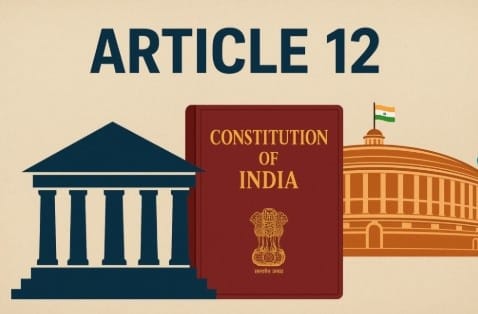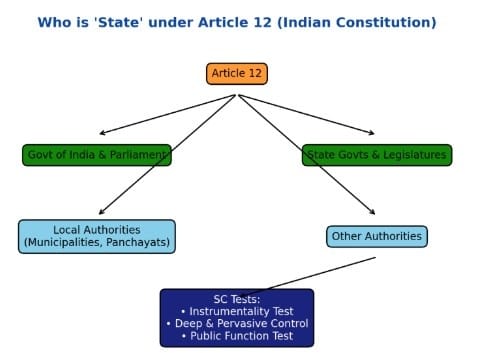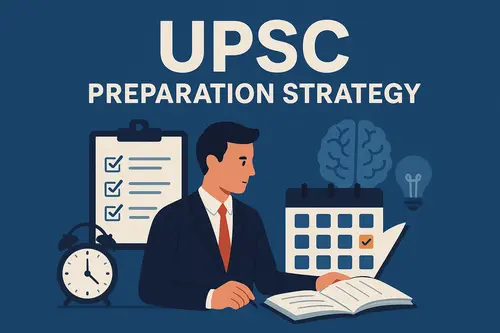
The Fundamental Rights provided for in the Indian Constitution is a very important and arguably central aspect of the Constitution, serving as the foundation for citizens protection against arbitrary actions of the State. However, this raises the question: Who is the State that has to honour these rights?
The answer is provided by Article 12. Article 12 defines the term “State” for the purposes of Article III (Fundamental Rights). This is important clarity which is required because if we do not know who is covered by the Fundamental Rights, we do not know who to question for accountability in the event of a breach of the rights.
As an example:
- If a government department denies you, say the freedom of speech, then you can obtain a remedy.
- What about, say a PSU, or a university or even, say the BCCI – are they “State” if they deny you your rights?
The Supreme Court over the years has taken a very expansive view of Article 12, expanding the meaning of “State” to ensure that any authority performing public functions cannot simply hide behind the veil of their own actions and escape constitutional accountability.
This is why many have correctly referred to Article 12 as the gateway to Fundamental Rights.
Article 12 of Indian Constitution-Definition

According To Indian Constitution , In Part 3 of the constitution, unless the context otherwise requires, State includes the Government and Parliament of India and the Government and the Legislature of each of the States and all local or other authorities within the territory of India or under the control of the Government of India.
Now, let’s simplify and expand it –
According to Article 12, “State” means:
- Government of India & Parliament
- Government of each State & State Legislatures
- All local authorities (Municipalities, Panchayats, District Boards, Improvement trusts, etc.)
- Other authorities → the phrase with the most controversy, which includes judgments made by courts that have broadened this definition.
The first three headings are uncontroversial. The really important debate and case law is about “other authorities”.
Landmark Judgments
- Rajasthan Electricity Board v. Mohan Lal (1967)
Held: Even statutory bodies (made by Constitution or law) are “State”.
Significance: First time SC enlarged “State” beyond just government departments.
- Sukhdev Singh v. Bhagatram (1975)
Held: ONGC, LIC, IFC = “State” because they were under deep government control.
Significance: Showed even public corporations are covered by Article 12.
- Ajay Hasia v. Khalid Mujib (1981)
Held: Instrumentality or Agency Test was introduced: If a body is financially, functionally or administratively dominated by the government, it is “State”.
Significance: Even a society registered under Societies Act could be “State” if subject to governmental control.
4. Pradeep Kumar Biswas v. Indian Institute of Chemical Biology (2002)
Held: CSIR = “State”.
Significance: Reaffirmed Ajay Hasia test plus criteria provided.
5. Zee Telefilms Ltd v. Union of India (2005)
Held: BCCI is no longer “State” under Article 12.
But: SC stated writ petitions under Art. 226 (High Court) can still be filed if a body performs a public duty.
Takeaway for UPSC: “Other Authorities” = expanding with decision of the SC.
Tests used by SC:
Instrumentality or Agency Test
Deep & Pervasive State Control Test
Public Function Test
Why it is Important
Article 12 essentially establishes precisely who must respect Fundamental Rights. Rights such as equality (Articles 14-16), freedom of speech (Article 19), and the protection of life and liberty (Article 21) are enforceable per se, primarily against the “State.” In other words, unless the authority is specified in Article 12, these rights cannot be claimed against it.
For example, a private company may discriminate, but the right under Article 14 may not be directly invoked unless that private company is interpreted in that the company is “State” by the courts themselves, namely, in the Ajay Hasia case or the Pradeep Kumar Biswas case; so the ambit of Article 12 has a direct correlation to the enjoyment of Fundamental Rights—it is the opening that could allow rights to be enforceable beyond merely the government sector and into the statutory or governmental controlled bodies as well.
The description of “State” under Art. 12 is not just theoretical, it has a direct and tangible impact on enforcement of Fundamental Rights.
If an entity is a “State” → Citizens can go direct to the SC under Art. 32 or High Courts under Art. 226 for breach of Fundamental Rights.
If an entity is not a “State” → Citizens cannot invoke Fundamental Rights against it. Collateral remedies become limited, unless courts extend writ jurisdiction (i.e., High Courts issue writs against other private entity, if they performed a public function, as in the Zee Telefilms case).
Fundamental Rights enforceable only against the State
| Fundamental Right | Article | Why Linked to State (Art. 12 relevance) |
|---|---|---|
| Right to Equality | Art. 14–16 | Equality before law, no discrimination, equality of opportunity → Obligations are on State authorities. |
| Abolition of Untouchability | Art. 17 | Applies to both State & private individuals (exception). |
| Abolition of Titles | Art. 18 | Only State confers titles → hence State-centric. |
| Right to Freedom | Art. 19 | Restrictions apply only against the State, not private persons (e.g., free speech). |
| Protection in Respect of Conviction for Offences | Art. 20 | Limits State’s power to punish. |
| Protection of Life and Personal Liberty | Art. 21 | Primarily State, but expanded by courts to cover private violations in some cases (Vishaka, Puttaswamy). |
| Protection against Arbitrary Arrest & Detention | Art. 22 | Applies against State agencies. |
Comparative Perspective – “State” in Other Countries
- USA: The phrase “State action” is used. Only acts of the government or entities performing public duties can be challenged under Fundamental Rights (Bill of Rights).
- UK: No written Constitution, but Statutory authorities are covered on Human Rights Act 1998. Courts check if private persons are exercising functions of a public character.
- South Africa: Constitution obliges both State and private persons to perform the outlined rights of equality and dignity.
Thus, in India = wider than US, due to judicial expansion of “other authorities”.
UPSC Importance of Article 12
Prelims
UPSC check usually who is covered as “State” as defined in Article 12.
Focus on: Parliament, Legislatures, State Govts, Local authorities, Other authorities.
BCCI, Universities, PSUs, regulation of social media etc.
Past Year Questions (Prelims):
2017: Which of the following is included in the definition of ‘State’ under Article 12? (options included: Government, Parliament, State Legislatures, Local bodies).
2012 (CDS): Is Judiciary as defined in Article 12 part of “State”?
Mains (GS-II)
If asked, questions are typically based on judicial interpretation and expansion of “other authorities”. Need to use case laws (Ajay Hasia, Pradeep Kumar Biswas, Zee Telefilms etc…).
Link with current affairs (Private Hospitals, Universities, BCCI, Social media companies).
Past Year Questions (Mains):
2019 (GS-II): “Judiciary has been the most powerful instrument in expanding the meaning of Article 12.” Discuss using case laws.
2013 (GS-II): “Discuss on the importance of the phrase ‘other authorities’ in Article 12 of the Constitution. How have the courts expanded this?”
So Article 12 is gold for both Prelims (definition based) and Mains (judicial expansion + current affairs).
Conclusion
Article 12 is the portal to Fundamental Rights. It ensures that not just government departments, but statutory authorities and government-controlled bodies respect citizens’ rights.
For UPSC, always remember:
- Article 12 = Who must follow Fundamental Rights.
- Key Focus = Judicial expansion of “other authorities”.
High court judges have emphasized this point. In Ajay Hasia (1981), Justice Bhagwati said:
“If there is Government control, there is a scope for violation of Fundamental Rights. Therefore, the body must be treated as State.”

